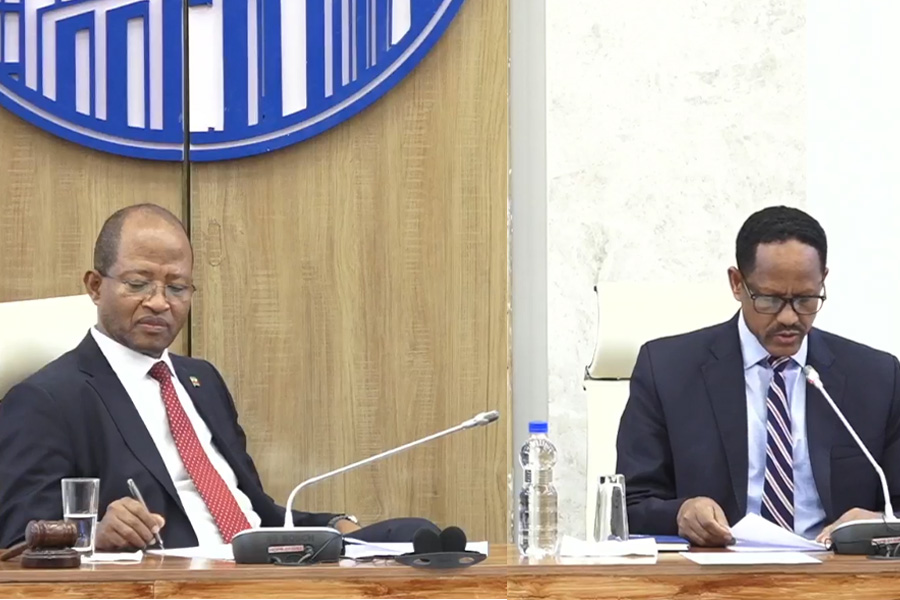
Fortune News | Nov 24,2024
Ethiopia is confronting a severe food insecurity crisis, with 15.8 million of its citizens facing acute hunger, according to a joint report by the United Nations Food & Agriculture Organisation (FAO) and the World Food Program (WFP). Over 6.2 million children face acute malnutrition, with 1.7 million at severe risk.
The grim report attributed the crisis to a confluence of erratic weather patterns, ongoing conflicts, and economic difficulties. A three-year catastrophic drought beginning in 2020 left communities vulnerable, followed by devastating floods the past two years. Macroeconomic headwinds and reduced humanitarian assistance have aggravated the situation, placing Ethiopia among 16 global hunger hotspots identified by the two UN agencies.
It now ranks the fourth most food-insecure country globally, trailing Nigeria, Sudan, and Yemen. Nigeria tops the list with 31.8 million food-insecure individuals, but Ethiopia's predicament is particularly alarming. The anticipated deterioration of the primary Meher harvest, mainly in southern and southeastern pastoral areas, feared to worsen conditions.
"Disposable income is out of the question," said Dida Kanchora, a farmer in the Borena Zone whose teff yield was halved due to insufficient rain and fertiliser shortages.
As a father of three, he now struggles to sustain his family. He is hardly alone, as only one-third of the Zone's land was ploughed this year due to inadequate rainfall, leaving six out of 10 districts uncultivated. Farmers in towns like Yabelo, Gomole, Elowoye, and Tettale farmed only 23,000hct, abandoning plans for wheat entirely.
"We harvest only 15pc of our plan," said Kare Dursih, a Oromia Regional State Agriculture Bureau senior official.
The proliferation of conflicts remains the main driver of food insecurity, affecting 14 out of the 16 hunger hotspots globally. One in seven people worldwide experienced armed violence by mid-2024, a 64pc increase from four years ago. The escalation undermines stability, diminishes coping capacities, and heightens vulnerability to natural disasters.
In Ethiopia, ongoing conflicts in the Oromia and Amhara regional states have displaced communities, disrupted livelihoods, and restricted humanitarian access. Intense fighting, shifting conflict zones, and bureaucratic hurdles impede aid delivery. The destruction extends to croplands and livestock, crippling agricultural productivity and forcing communities into dependency on dwindling humanitarian aid.
Farmers are often unable to access markets, while displacement interrupts education and healthcare, creating a vicious cycle of poverty and food insecurity.
Despite these, federal authorities remain optimistic.
"We've cultivated over 20.4 million hectares of land, yielding 53 million quintals of crops," said Esayas Lemma, head of crop development at the Ministry of Agriculture (MoA), downplaying concerns over below-average rainfall.
Government representatives argue that the nationwide yield would suffice to address food needs if distributed effectively. However, logistical constraints, impeded by ongoing conflicts and regional disparities, make equitable distribution a monumental task. Given the magnitude of the crisis, efforts to scale up irrigation-based agriculture and modernise farming practices remain inadequate.
While above-average rainfall benefited some regions, others suffered from localised flooding, delayed rains, and dry spells. Ethiopia's late 2023 and early 2024 floods caused extensive damage to crops and infrastructure. Humanitarian aid efforts face barriers, with Ethiopia receiving merely 21pc of the funds required for its 2024 Humanitarian Response Plan. Rising food prices, driven by inflation and supply constraints, have compounded the crisis.
The struggles of ordinary citizens illustrate the growing chasm between macroeconomic indicators and everyday realities.
Tigist Adane faces dwindling purchasing power as teff prices soar to 15,000 Br a quintal, cooking oil to 1,600 Br for five litres, and onions to 110 Br a kilogram. Displaced from Qera to Bole Arabsa due to urban redevelopment, she now battles transportation costs and rising school fees.
"I'm surviving by the creator's miracle," she said the 42-year-old teacher, earning a monthly 9,000 Br (71.22 dollars at last week's central bank exchange rate for selling).
The FAO-WFP report calls for multipurpose cash transfers for vulnerable households, investment in irrigation-based agriculture, and support for private-sector feed suppliers. Experts urge comprehensive solutions to address the crisis, including strengthening early warning systems and disaster preparedness, which could also improve resilience against climate shocks.
"Land use planning remains crucial," said Abebe Dagnaw (PhD), a development expert, advocating investments in regional states like Afar.
He believes reliance on international aid, agricultural imports, and insufficient domestic production underlines systemic vulnerabilities.
"Without major policy reform and investment, the cycle of food insecurity is likely to persist," Abebe told.
He argues that the government's inability to subsidise agriculture leaves farmers vulnerable to fluctuating global markets. He recommends expanding irrigation, improving access to fertilisers, and facilitating public-private partnerships.
Abebe believes resolving conflicts in Oromia and Amhara regional states is imperative, paired with investments in infrastructure and community-based support systems to rebuild livelihoods and ensure access to markets and services.
PUBLISHED ON
Dec 01,2024 [ VOL
25 , NO
1283]

Fortune News | Nov 24,2024
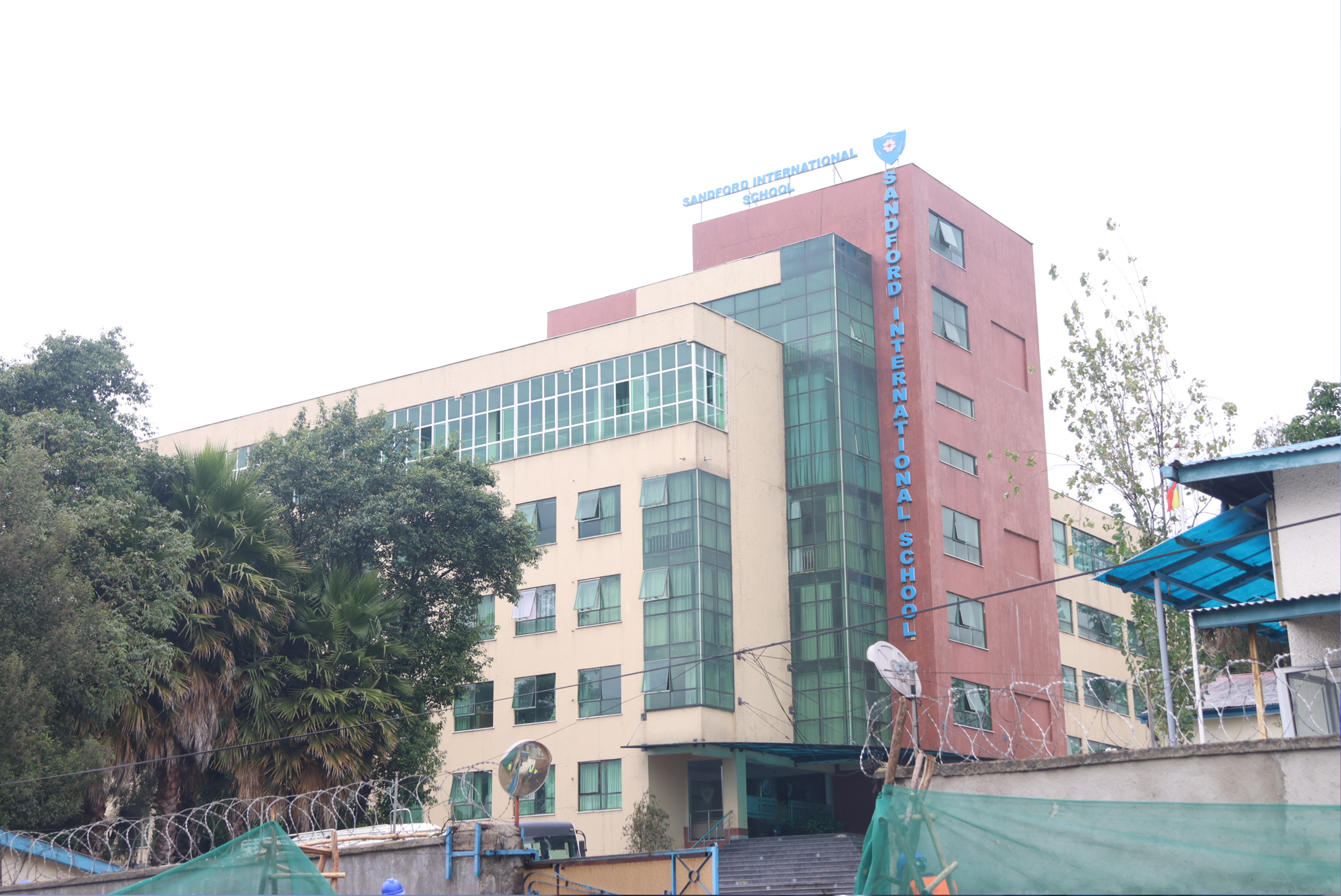
Fortune News | Jul 26,2025
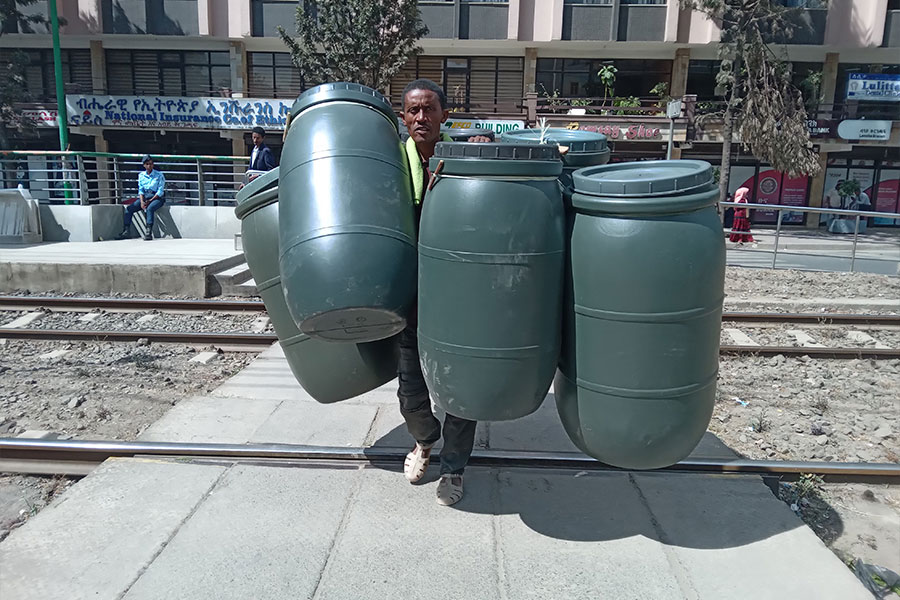
In-Picture | Feb 03,2024

Life Matters | Jun 07,2025

Fortune News | Feb 03,2024

Editorial | Apr 09,2023
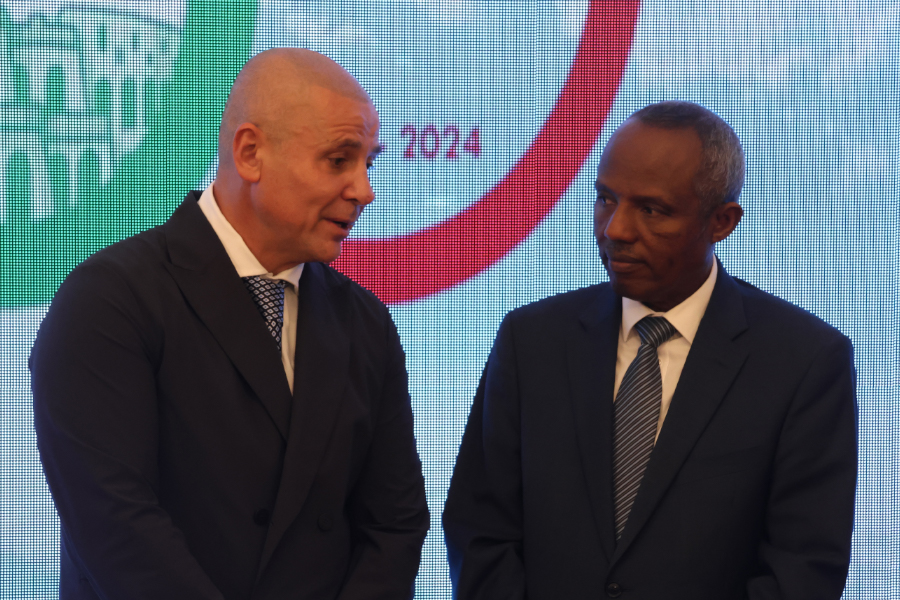
Radar | Sep 29,2024
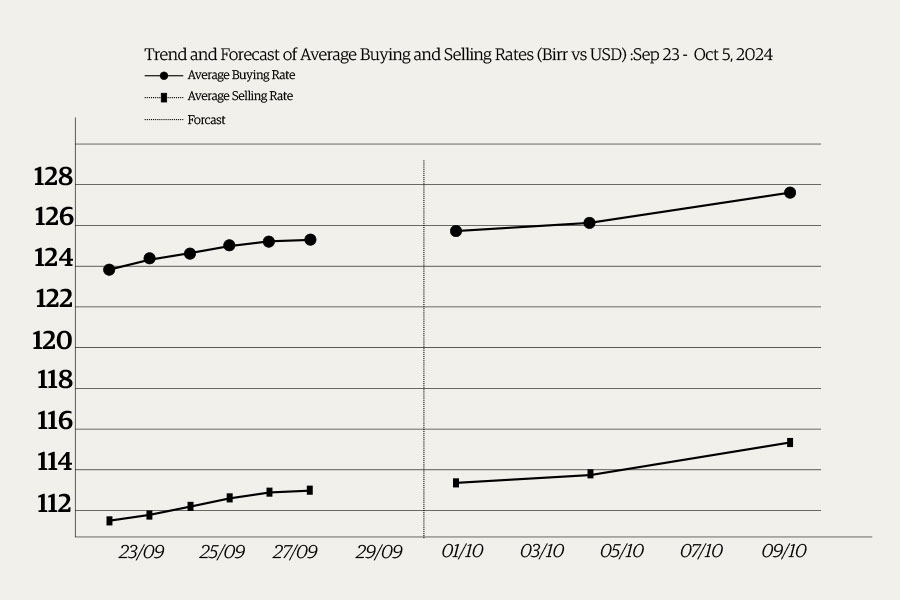
Money Market Watch | Sep 28,2024

Radar | Sep 14,2024

My Opinion | Apr 22,2023

Dec 22 , 2024 . By TIZITA SHEWAFERAW
Charged with transforming colossal state-owned enterprises into modern and competitiv...

Aug 18 , 2024 . By AKSAH ITALO
Although predictable Yonas Zerihun's job in the ride-hailing service is not immune to...

Jul 28 , 2024 . By TIZITA SHEWAFERAW
Unhabitual, perhaps too many, Samuel Gebreyohannes, 38, used to occasionally enjoy a couple of beers at breakfast. However, he recently swit...

Jul 13 , 2024 . By AKSAH ITALO
Investors who rely on tractors, trucks, and field vehicles for commuting, transporting commodities, and f...

Nov 1 , 2025
The National Bank of Ethiopia (NBE) issued a statement two weeks ago that appeared to...

Oct 25 , 2025
The regulatory machinery is on overdrive. In only two years, no fewer than 35 new pro...

Oct 18 , 2025
The political establishment, notably the ruling party and its top brass, has become p...

Oct 11 , 2025
Ladislas Farago, a roving Associated Press (AP) correspondent, arrived in Ethiopia in...